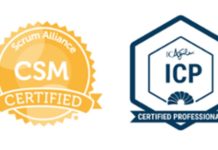The exact definition of DevOps is one that’s widely debated, and there’s no clear-cut answer to what it is, but there are a few things that are agreed upon when discussing the topic. The first is that DevOps was developed as a means of improving how IT services are delivered, with a particular focus on agility. There’s also a focus on communication and collaboration between IT professionals and software developers. The ultimate goal of DevOps is to have an organization be able to streamline and integrate the production of software and IT services.
The result of a DevOps culture in an organization? It’s often better software produced in shorter amounts of time and an overall improvement in efficiency.
So how can organizations not only embrace the concepts of DevOps but also build a culture around this framework?
Hire the Right People
If you want a cultural move toward DevOps in your organization, you need the right people on board. You may have to find professionals that have the skills and know-how to lead other employees through this shift. At the same time, recruiting a whole DevOps team may not be feasible, which is when the next tip, training, comes into the equation.
Invest in Training
Having key employees participate in DevOps training is a great place to start if you want to build a cultural foundation surrounding these concepts. When employees participate in training, particularly in a certificate program, they’re going to be able to learn how to improve workflows between developers and IT professionals. These training programs also frequently focus on helping professionals rely more heavily on automation, and learn the factors that determine performance and success.
Emphasize Shared Responsibility
It’s not just technical elements that are essential to an organization DevOps culture. One of the key principles that guide this entire framework is shared responsibility, so if you want a cultural shift to occur, this needs to be part of it. This is something that can be reinforced not only in terms of software development and communication with IT teams but throughout an entire organization. As part of shared responsibility, there should be very clear goals in place that determine what success will look like, so there’s something for everyone to work toward achieving together. The elimination of silos is a necessity with regard to the emphasis of shared responsibility.
Measure
As mentioned above, if you want a DevOps culture you need to have defined goals set, and also have metrics in place that will let everyone in the organization know if these goals have been achieved. Before you start working toward a cultural shift, measure your current metrics to gauge your present level of efficiency and communication. You can then measure throughout the implementation of a DevOps culture, and even once you feel as if your organization has reached certain metrics, it’s important to continue measuring over time. Not only should you be looking at efficiency here, but also quality and overall productivity.




